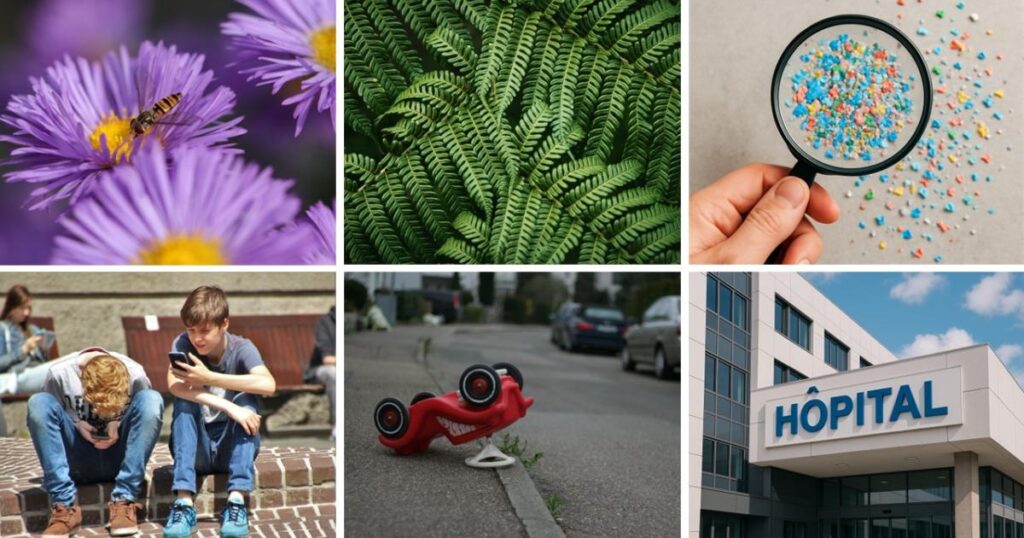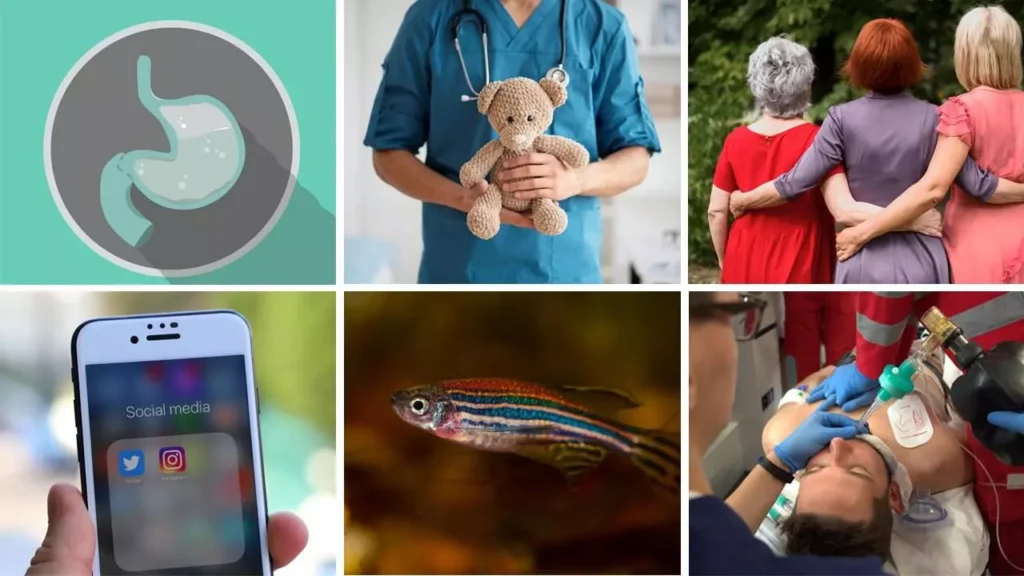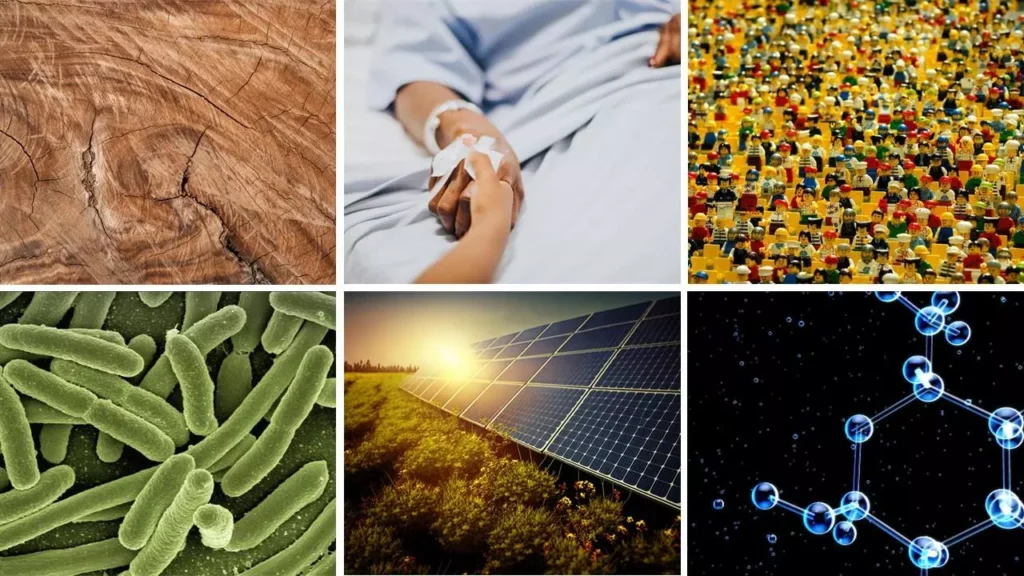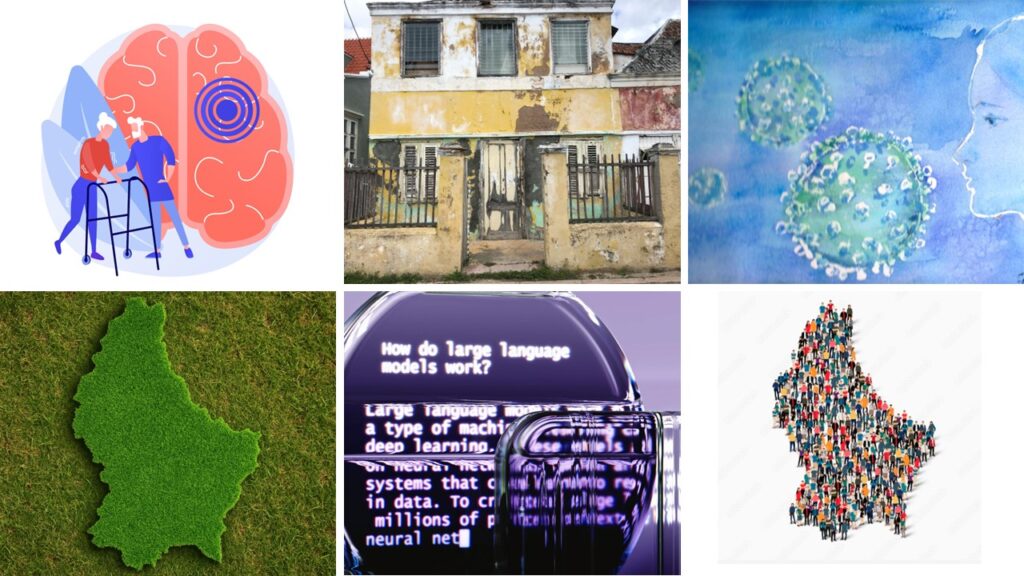10 selected Research Luxembourg results – July 2025
07 August 2025

Luxembourg News in Science & Research
How are young people in Luxembourg balancing digital life with reading, sports, and cultural outings? Can microbes and endangered flower flies help us rethink our approach to pollution and biodiversity? And how are AI tools—from legal chatbots —shaping the future of justice?
This article was originally in French and German on science.lu
Young People’s Cultural Activities in 2023: Digital Tech, Reading, Sports, and Outings
Luxembourg Institute of Socio-Economic Research
This recent study offers an overview of the cultural activities of 6- to 21-year-old Luxembourg residents in 2023, focusing on digital technology, reading, sports/leisure, and cultural outings. While most are well equipped with smartphones and Internet access, social inequalities persist.
Music and social media shape daily life, while traditional media like TV and radio lose ground. Reading peaks in primary school but declines during adolescence, though digital reading—especially comics and newspapers—increases with age.
Sport remains popular but drops off over time, as do artistic activities, except for video games and writing. Cinema is the top cultural venue, followed by monuments and museums, which see less interest after age 13. Libraries appeal mainly to younger children. Parties remain popular, with notable gender and social differences.
Pollinators: New Species of Flower Flies (Neoascia) Discovered in Luxembourg Amid Global Decline
Fondation faune-flore, Musée national d’histoire naturelle (MNHN)
A 2023–2024 study in Luxembourg updates knowledge on Neoascia, a genus of hoverflies. It confirms for the first time the presence of Neoascia unifasciata, an IUCN-listed endangered species. A national action plan is underway to protect it.
Two other species—N. interrupta (new to the country) and N. obliqua (previously unpublished)—were also found, along with N. annexa and N. meticulosa, which had uncertain previous records. These hoverflies thrive in wet habitats with Petasites hybridus (butterbur). Further research is needed on their ecological needs, including the impact of beavers, which may threaten their habitats.
Globally, 75% of crops rely on pollination, but pollinators are declining due to land use changes, pollution, nitrification, and invasive species.
LegAI: A Chatbot to Democratize the Law and Improve Access to Justice
University of Luxembourg, FNR – Luxembourg National Research Fund
LegAI is a research project aimed at improving access to justice by developing a chatbot that helps users understand key legal concepts.
Designed to mimic a lawyer’s reasoning, the chatbot specializes in specific legal areas, using formal logic to connect facts with relevant legal frameworks. Currently, it focuses on European patent law and data transfers under the GDPR. European patents protect inventions across EPO member states, while the GDPR regulates personal data transfers outside the EU and EEA.
The project is led by the University of Luxembourg under the FNR Core Program, in collaboration with Poland’s National Center for Research and Development and AGH University of Science and Technology in Krakow.
A Young Mathematician is Changing Probability Theory
A recent thesis has made significant contributions to the field of graphical models, which are used to represent complex systems such as the internet, telecommunications, societies, ecosystems, the economy, the brain, social networks, and AI. Titled “Quantitative CLTs on the Poisson space via Skorohod estimates and p-Poincaré inequalities,” the work earned Tara Trauthwein the 2025 Rolf Tarrach Prize, awarded for the best doctoral thesis at the University of Luxembourg.
Her research introduces new mathematical tools to better understand the behavior of networks built from randomly distributed points in space.
Already cited internationally, her findings have applications in stochastic processes—useful for modeling things like stock market trends—and in statistical medicine, where they enhance the estimation of treatment effectiveness.
Press release
Federated Learning: Enabling Hospital Collaboration Without Sharing Private Data
Luxemburg Institute of Health (LIH), Laboratoire National de Santé (LNS)
A recent study presents the largest global collaboration in federated learning, aimed at developing an AI model to automatically detect tumor contours in glioblastoma patients—a rare, aggressive brain cancer. With participation from 71 sites across six continents, researchers compiled the largest database ever for this disease.
Federated learning allows hospitals to keep their data locally while securely sharing model updates, avoiding privacy concerns and data transfer challenges.
The model showed significantly improved accuracy over traditional methods. However, limitations remain, such as the lack of automated data quality checks and diminishing performance gains as more cases are added.
Press Release
A Country’s Economic Growth Does Not Necessarily Lead to Lasting Improvements in Well-Being
National Institute of Statistics and Economic Studies (STATEC)
Despite its prominence in public debate, economic growth fails to translate into long-term gains in well-being, according to a recent study by STATEC. The authors attribute this to people’s focus on purchasing power and employment.
Growth is often uneven, and its benefits are offset by social comparisons, as well as environmental and social costs like pollution and mistrust. To truly improve lives, the authors argue, policymakers should focus directly on well-being.
They cite several examples from global policy interventions. For instance, urban greening programs have been found to reduce crime and boost mental and physical health.
Press release
New Recommendations for Studying and Treating Diseases Linked to the Gut Microbiota
Luxemburg Institute of Health (LIH), University of Luxembourg (LCSB), Laboratoire National de Santé (LNS)
A survey of over 100 microbiota specialists offers a snapshot of current knowledge in this rapidly growing field. The gut microbiota plays a key role in diseases like inflammatory bowel disease, obesity, and type 2 diabetes, though proving causality remains a major challenge.
The study also reviewed laboratory models. While germ-free mice and mice with human microbiota are useful, they don’t fully reflect human complexity. Pigs show promise due to their biological similarity to humans. Lab-grown mini-organs (organoids) and organ-on-chip systems are still limited in establishing cause-effect links.
Experts believe modifying the microbiota—via diet, probiotics, or other methods—could aid treatment, and stress the need to consider individual differences for more personalized approaches.
Press release
Microbes Offer an Eco-Friendly Solution to Microplastics
University of Luxembourg (FSTM)
In the fight against microplastic pollution, scientists are turning to microbes to develop greener alternatives. Prof. Anupam Sengupta’s team has created a patented technology that uses microorganisms to produce carbon-negative biomineral particles—tiny minerals that remove more CO₂ from the atmosphere than they emit. These particles could serve as sustainable substitutes for microplastics.
The technology, called µ-BITS, is based on the process of microorganism-induced calcite precipitation. It enables precise control over the shape, size, and surface of the biominerals, allowing them to be tailored for use in products like paints, cosmetics, laundry detergents, and toothpaste.
Microplastics are a widespread environmental issue, often hidden in everyday products—making up to 38% of some paints, 10% of cosmetics, and 15% of tires—where they’re used to achieve specific textures or finishes.
Press release
Vascular Plants: Rise in Number and Proportion of Threatened Species
Musée national d’histoire naturelle (MNHN)
Luxembourg’s new Red List of vascular plants (ferns, flowering plants, conifers, etc.) updates the 2005 assessment using IUCN criteria. Despite conservation efforts, both the number and proportion of threatened species have increased, showing continued erosion of local flora.
Biodiversity-rich habitats—such as dry grasslands, wetlands, and forests—host the most threatened species. The study also notes a sharp rise in established exotic species, indicating growing biotic homogenization. Some plant populations in Luxembourg are of international importance and require targeted conservation. Recommended actions include species translocation, habitat management, and full ecosystem restoration, such as green hay transfers or the creation of conservation fields.
Press release
Fewer Road Deaths in 2024 Despite Numerous Accidents
National Institute of Statistics and Economic Studies (STATEC)
A new STATEC report shows that fatal road accidents fell from 41 in 2013 to 18 in 2024, though the number of serious injuries has remained stable.
The main offenses are speeding, violations against pedestrians, and drug or alcohol use. Accidents increase in spring and summer, including in northern Luxembourg. While deaths have declined over the past decade, minor injuries have risen—from 981 in 2014 to 1,144 in 2024.
Most deaths and serious injuries involve motor vehicles (cars, motorcycles), followed by pedestrians.
Author: Diane Bertel
Editor: Lucie Zeches (FNR) ; Nicolas Stamets (Research Luxembourg)











